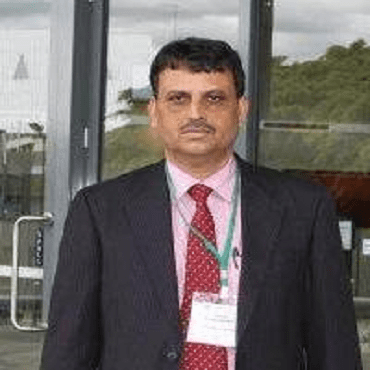Scientific Program

Susanta Kumar Chakraborty
Vidyasagar University,India
Title: Ecodegradation & Ecorestoration : Coastal mangrove ecosystem , west Bengal, India
Biography:
Susanta Kumar Chakraborty, Professor of Zoology, Vidyasagar University, born on 31st July, 1960, has been in active research since 1982 after completion of his M.Sc. in Zoology from the Calcutta University .His research preferences centre around on the subjects like ecology, coastal, mangrove, fresh water wetlands, rivers and estuaries, with an emphasis on biodiversity and ecosystem dynamics. He has been also associated with action research on the Integration of rural biotechnologies for the environmental management, ecorestoration and livelihood generation. He did his M. Phil. in Environmental Science and Ph.D. in marine science from the Calcutta University in the years 1984 and 1992 respectively. He has been imparting teaching spanning a period of three decades mostly in the postgraduate level covering different aspects of zoology in general and ecology/environmental science in particular.
Abstract
Ecodegradation (deteoration of environmental qualities) and Ecorestoration(return of an ecodegraded ecosystem to a close approximation of its condition prior to disturbation) represent two contrasting ecological terms dealing with eco-management of any ecosystem of the world. Ecorestoration being a multidimensional activity involve all major hierarchial levels of ecological organizations from species to entire ecosystem. Coastal- mangrove ecosystem representing the most productive and dynamic ecosystem of the world, supports innumerable number of flora and fauna in its diversified habitats and ecological niches. A comprehensive decadal study on biodiversity and environmental characteristics (water and soil qualities) of three different selected study sites located on different estuarine networks viz. Matla, Saptamukhi and Hooghly on eastern, central and western regions, of Sundarbans Mangrove Ecosystem, India, a World Heritage Site, was conducted.A total of 39 species of true mangroves,23 genera of phytoplankton, 42 species of zooplankton, 18 families of ichthyoplankton, 79 species of macrobenthos , and diversified forms of fishes, reptiles, birds and mammals have been recorded. However, different human centric developmental activities (industrialization, urbanization ,ecotourism etc.) have contributed a lot towards the large scale ecodegradation coupled with loss of biodiversity in this sensitive, vulnerable and productive ecosystems of the world.
In such context, the present paper will highlight 4 fold of objectives—1) Assessment of existing biodiversity , ecological services and trend of changes during last two decades; 2) Identification of causative factors(Threats -sources and characteristics) leading to ecodegradation and biodiversity loss; 3) Evaluation of already undertaken eco-restoration efforts and their impact in the present studied environment (Biodiversity and their habitats) 4) Chalking out restoration strategies adhering to the underlying ecological principles.
- Biodiversity & Ecology
- Marine & Coastal Biodiversity
- Bioprospecting Sustainable Use
- Afforestation
- Environmental Toxicology
- Genetic Diversity
- Agrobiodiversity & Agroecology
- Captive Breeding
- Molecular Ecology
- Phenology
- Biodiversity Informatics
- Revive & Restore Species

